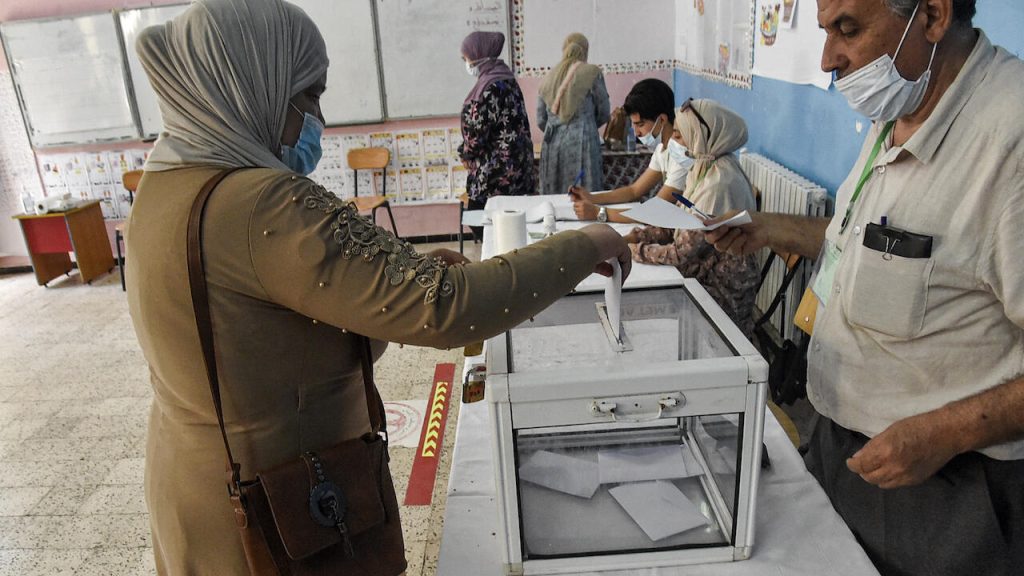As Algeria approaches its presidential election this weekend, the atmosphere is marked by a noticeable lack of enthusiasm. Empty billboards and sparse campaign posters reflect a nation where the public’s focus is more on the rising cost of living than on politics.
For many Algerians, prolonged inflation has become a daily struggle, with soaring prices for essentials such as school supplies, potatoes, and coffee overshadowing the election. The 78-year-old military-backed President Abdelmadjid Tebboune is widely expected to secure a second term with little challenge.
With the opposition accusing the ruling elite of tightening their grip on power, only two candidates have been approved to challenge Tebboune: Islamist candidate Abdelaali Hassani Cherif, 57, and socialist Youcef Aouchiche, 41, a former journalist representing a prominent centre-left opposition party.
Sociologist Mohamed Hennad notes that the key concern for the ruling establishment, often referred to as “le pouvoir,” is securing voter turnout to legitimise Tebboune’s expected victory. Algeria’s election authority has registered 23 million voters out of the country’s 45 million population.

Candidates are keen to improve on the meagre 14% turnout of the 2019 election, which was marred by protests and boycotts. Although Tebboune initially praised the Hirak movement and released some activists, Algeria later banned protests during the COVID-19 pandemic, and opposition figures and journalists continue to face legal challenges.
One candidate, Aouchiche, has addressed issues of human rights and political prisoners during his campaign, but many Algerians feel that the election lacks genuine political debate. Opposition figures have labelled the vote a mere formality, with some parties opting to boycott rather than participate.
Reports of repression have surfaced, with dozens arrested on election fraud charges and several potential candidates placed under court supervision. Karim Tabbou, a prominent Hirak figure, was detained in what his wife described as an “abduction,” while another opposition leader, Fethi Ghares, was recently arrested and later released under judicial supervision.
Meanwhile, President Tebboune has been touring the country, highlighting his efforts to raise wages and pensions and offering young people new opportunities, including interest-free loans for start-ups. Young people, who make up over half of Algeria’s population, are a key focus of his campaign.

